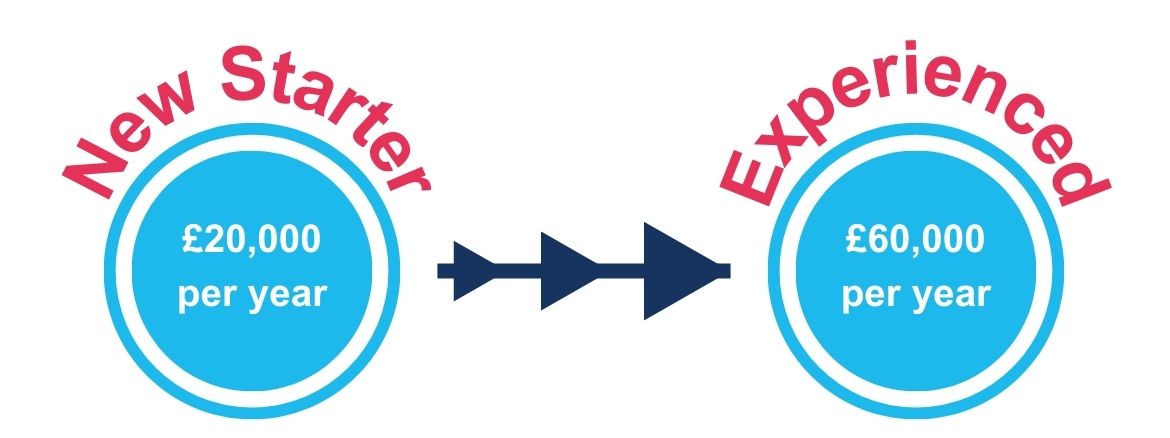An operations manager is someone who manages teams and/or projects, and achieving operational or departmental goals and objectives, as part of the delivery of the organisations strategy. They are accountable to a more senior manager or business owner. Working in the private, public or third sector and in all sizes of organisation, specific responsibilities and job titles will vary, but the knowledge, skills, and behaviours needed will be the same.
Key responsibilities may include creating and delivering operational plans, managing projects, leading and managing teams, managing change, financial and resource management, talent management, coaching and mentoring.
Course Requirements
Those without level 1 English and maths will need to achieve this level prior to taking the end-point assessment.
Understand operational management approaches and models, including creating plans to deliver objectives and setting KPIs. Understand business development tools (eg SWOT), and approaches to continuous improvement. Understand operational business planning techniques, including how to manage resources, development of sales and marketing plans, setting targets and monitoring performance. Knowledge of management systems, processes and contingency planning. Understand how to initiate and manage change by identifying barriers and know how to overcome them. Understand data security and management, and the effective use of technology in an organisation.
Know how to set up and manage a project using relevant tools and techniques, and understand process management. Understand approaches to risk management.
Understand business finance: how to manage budgets, and financial forecasting.
Understand different leadership styles, how to lead multiple and remote teams and manage team leaders. Know how to motivate and improve performance, supporting people using coaching and mentoring approaches. Understand organisational cultures and diversity and their impact on leading and managing change. Know how to delegate effectively.
Know how to manage multiple teams, and develop high performing teams. Understand performance management techniques, talent management models and how to recruit and develop people.
Understand approaches to partner, stakeholder and supplier relationship management including negotiation, influencing, and effective networking. Knowledge of collaborative working techniques to enable delivery through others and how to share best practice. Know how to manage conflict at all levels.
Understand interpersonal skills and different forms of communication and techniques (verbal, written, non-verbal, digital) and how to apply them appropriately.
Understand own impact and emotional intelligence. Understand different and learning and behaviour styles.
Understand time management techniques and tools, and how to prioritise activities and the use of different approaches to planning, including managing multiple tasks.
- Understand problem solving and decision making techniques, including data analysis.
- Understand organisational values and ethics and their impact on decision making.
- Able to input into strategic planning and create plans in line with organisational objectives.
- Support, manage and communicate change by identifying barriers and overcoming them. Demonstrate commercial awareness, and able to identify and shape new opportunities. Creation and delivery of operational plans, including setting KPIs, monitoring performance against plans. Producing reports, providing management information based on the collation, analysis and interpretation of data.
- Plan, organise and manage resources to deliver required outcomes.
- Monitor progress, and identify risk and their mitigation. Able to use relevant project management tools.
Able to monitor budgets and provide reports, and consider financial implications of decisions and adjust approach and recommendations accordingly.
- Able to communicate organisational vision and goals and how these to apply to teams.
- Support development through coaching and mentoring, and enable and support high performance working. Able to support the management of change within the organisation.
Able to manage talent and performance. Develop, build and motivate teams by identifying their strengths and enabling development within the workplace. Able to delegate and enable delivery though others.
- Able to build trust, and use effective negotiation and influencing skills and manage conflict.
- Able to identify and share good practice, and work collaboratively with others both inside and outside of the organisation. Use of specialist advice and support to deliver against plans.
Able to communicate effectively (verbal, non-verbal, written, digital) and be flexible in communication style. Able to chair meetings and present using a range of media. Use of active listening, and able to challenge and give constructive feedback.
Able to reflect on own performance, working style and its impact on others.
Able to create a personal development plan. Use of time management and prioritisation techniques.
Able to undertake critical analysis and evaluation to support decision making Use of effective problem solving techniques
- Drive to achieve in all aspects of work.
- Demonstrates resilience and accountability.
- Determination when managing difficult situations.
- Seeks new opportunities.
- Open, approachable, authentic, and able to build trust with others.
- Seeks views of others and values diversity
- Flexible to the needs of the organisation.
- Is creative, innovative and enterprising when seeking solutions to business needs.
- Positive and adaptable, responds well to feedback and need for change.
- Open to new ways of working
- Sets an example, and is fair, consistent and impartial.
- Open and honest.
- Operates within organisational values
Assessment Methods
This course encompasses knowledge, skills and behaviours. During the assessment, practical aspects will need to be demonstrated.
End-Point Assessment
- Written project report with presentation and questions
- Professional discussion underpinned by a portfolio of evidence
Progression Routes
This apprenticeship aligns with The Chartered Management Institute for Member, as well as Chartered Manager status where they can evidence 3+ years management experience.
(Please contact the professional body for more details.)




